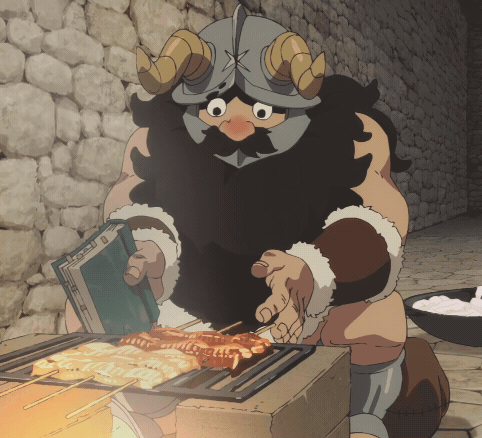This is the last post on the Old Testament, and it’s not very long. It’s a wide variety of subjects so there’s no main theme here, like most of the preceding posts. I do still have contradictions in my future posts that pertain to the Old Testament, but they will be about God, Jesus, or the New Testament. As before the “Q” is what Guy (my made up name for the person(s) posting the supposed contradiction), and “M” is my answer to him.
Q: Did Asa remove the high places?
1KI 15:14 Asa did not remove the high places.
2CH 14:2-3 He did remove them.
M: In 2 Chronicles, I do not see in the original Hebrew where it said or implied that all were removed, though it does say King Asa removed altars from every town in Judah. If you read on to chapter 15, focusing on verse 17, you’ll see where the author of 2 Chronicles went on to explain he did not remove all the altars, specifically in Israel. First Kings helps to explain what happened: Asa removed altars, prostitutes, idols, poles, and others where the false gods were worshiped and rebuilt the altars to Yahweh, the one true God.
That’s the most forward answer for that, but you can get into depth a little more in knowing that the ancient Hebrews and neighbors had the concept that the authors by using “all” meant “most” was destroyed. For example, the Hebrew word kol, as used in 2 Chronicles 15:9 where he assembled “all” of Judah and Benjamin, etc., didn't mean every last single person in those tribes were there. You will find this usage all throughout the Bible and other secular manuscripts from that time period. The term was used for emphasis, to give a weight to the subject the author was talking about. People, at that time, knew that it didn’t mean every single item was included in the statement, being commonly used in that manner.
And if you’ll think about it, we do the same thing today. For example, all Missourians love the Kansas City Chiefs. We know that’s not every individual in the state, but only a generality, a large share of the group.
Q: Was Ahaz conquered?
2Kings 16:5 The King of Syria and the son of the King of Israel did not conquer Ahaz.
2Chron 28:5-6 They did conquer Ahaz.
M: I don't see a conflict here either. 2 Kings says they besieged but didn't overcome him. 2 Chron says God delivered Ahaz to the king of Aram’s hand who nakah Ahaz. (Aram was located in Syria.) Nakah means “to smite, hit, beat, slay, kill.” It is used primarily to mean “strike”, but there are metaphorical uses that range from “a simple hit” to “a fatal blow”, but “often used in the context of divine judgment or warfare.” [Strong’s Lexicon]
I’d say since Ahaz was still standing and had more battles to face in 2 Chronicles 28 (see verse 16), he hadn’t been conquered completely, and Aram’s king simply dealt a terrific blow to Ahaz, leaving him standing but reeling from the pounding.
Q: Should we be happy if one sees another fall?
Psalms 58:10-11 The righteous shall rejoice when he sees vengeance.
Prov 24:16-18 Do not rejoice when your enemy falls or stumbles.
M: Ps 58:9 says they [bramble/thorn] will be taken away and vs 10 says the righteous will wash his feet in the blood. This is definitely speaking of the end times. Rev 6:10 has the martyred asking when vengeance is coming to which God answered in a little while. The righteous will indeed be able to rejoice at the end of time for justice will be delivered on that final day. Christians through the millennia have gone through some horrible things. There are more Christians in the world today being persecuted than all of the centuries combined1. So, I imagine those who suffered the most wouldn’t mind their persecutors getting their just punishment. Wouldn’t you?
Nevertheless, as said in Proverbs, we shouldn't be happy about someone else's problems in the meantime. Solomon was referring to today. We should not be rejoicing when our “enemy” falls or has a hard time. After all, we fall too. Do we want our enemy gloating over us? I wouldn’t think so.
Just keep the love Jesus talked about in our hearts and minds for our neighbors, whether they be good or bad. And note: this isn’t talking about God’s judgment against them, as in the first verse, but about their current circumstances. We should pity those who aren’t in God’s corner, knowing what will be their ultimate experience. What did Mary Lathrap say about walking in someone else’s moccasins? Maybe if you can put yourself in their place, you can find why someone acts as they do. And, of course, we must not forget the Golden Rule Jesus taught us. If we all would do this, it might be an easier world to live in.
Q: Was Jeremiah true to Zedekiah?
Jere 34:4-5 Zedekiah was to die in peace.
Jere 52:10-11 Instead, Zedekiah's sons are slain before his eyes, his eyes are then put out, he is bound in fetters, taken to Babylon and left in prison to die.
M: Chap 34 says literally, step by step: Neb will burn the city, Zedekiah will not escape, and Zed will see old Nebbie himself. Yet Zedekiah won't die by the sword, and in peace, shalom, he shall die with the people honoring him in his death like they did his fathers. Shalom is a word that means “having well-being in all fullness” and is “deeply rooted in the covenant relationship between God and His people, where peace is seen as a divine gift resulting from obedience to God’s laws.” [Strong’s Lexicon, emphasis added] Keep this in mind until the last paragraph.
Jeremiah 38:17-18 Jeremiah told Zedekiah he needed to surrender to the officers of Babylon, then his family would live, but if he didn't his family would indeed die. Did Zed listen? Nope. Zedekiah fled when Babylon attacked, leaving others behind to continue fighting. By doing this, he himself killed his family and chose his future in accordance to what Jeremiah had told him. In chap 52, Zedekiah's sons were killed in front of him and he was thrown in jail. He did not die by the sword as God had promised.
There are several possible explanations here as I see it: 1) after the fall of his family and Judah, Zedekiah finally relented to God in prison and was given shalom, as defined by the usual meaning of a “divine gift of peace” up to his death; 2) Shalom can also simply mean “safety”, which Zedekiah would have had in prison; or 3) Zedekiah may have lived for many years and after all threats were gone, either old Nebs or, more likely, his son Evil-Merodach eased up his prison stay and treated him to certain royalties because of being royal himself, as was done from time to time among rulers.
Q: Murder or not?
Exod 20:13 Thou shalt not kill
Exod 32:27 Thus saith the Lord God of Israel, Put every man his sword by his side... and slay every man his brother...
Gen 9:5-6 At the hand of every man's brother will I require the life of man. Whoso sheddeth man's blood, by man shall his blood be shed.
Gen 4:15 And the Lord set a mark upon Cain, lest any finding him should kill him.
M: You are to respect each other's life, period. Cain murdered before the Noahic Covenant and the Mosaic Law, and these were not to be retroactively enforced. God takes you from today forward when He wipes the slate clean. In my mind, Cain must have been, at least in part, remorseful and repented for his sin.
A little technical here: the word for “kill” used here in Exod 20:13 was ratsach which primarily refers to a murder, an unlawful killing.
However, self-defense, including wartime, is biblically supported. ( For example: Luke 22:36 Jesus told the disciples to sell their cloak and buy a sword if they didn't have one while they traveled; Ps 144:1 Praise be to the Lord my Rock, who trains my hands for war, my fingers for battle; Neh 4:14b Remember the Lord, who is great and awesome, and fight for your families, your sons and your daughters, your wives and your homes.) But do keep the Noahic Covenant in mind, you will answer for all blood spilled. Romans 12:18 says “If possible, so far as it depends on you, live peaceably with all.”
Q: David outsmarts angels?
1CH 21:29-30, 22:1, 23:25-26 The Davidians won that struggle over the earthly residence of God. David could not enter the tabernacle in the high place to inquire of the Lord because one of the Lord's sword-bearing angels was refusing to allow David to enter. So David decided that if he could not inquire of the Lord in the high place, what the heck, why not just move the Lord to where he was? And thus Jerusalem, that renowned center of peace and brotherly love, became the "Holy City of God."
M: In the first passage, Yahweh told David to build the altar on the threshing floor of Araunah where the “angel of the Lord” was standing. The sword of the angel was extended over Jerusalem (1Chron 21:16-19), thus David probably was afraid of disobeying the angel, not trying to outsmart him–he did just as the angel had instructed. It seems he understood from God’s fire falling from heaven on the altar and the angel putting up his sword that the tabernacle was no longer needed, that they needed to make Jerusalem a place to dwell in rest. (1 Chron 22:18-19) In Chapter 17, God had already told David He would provide a place for Israel to have a home of their own and that Solomon would build the house for the Lord.……………… (Well, at least for a while.)
Q: How old was Jehoiachin?
2Chron 36:9 - "How old was Jehoiachin when he began his rule?"-he was "8" and ruled for 3 months and 10 days then "lost favor with God" and was replaced.
2KIngs 24:8 Jehoiachin was eighteen years old when he became king.
M: This is another true translation error. Jehoiachin was 18 (as is usually accepted) when he took the throne. The scribe apparently missed the esreh which put the extra ten onto the eight. Must have been a long day.
As I mentioned at the beginning of this post, this is the last one that pertains directly to the Old Testament. I’m going to move onto the contradictions about God. Things should pick up now since these are more along the line of what people may have problems or questions about. Does God repent? Change His mind? Demand sacrifices or not? Does God inflict sickness? These are some of the questions I’ll be tackling in the future posts. I look forward to presenting my thoughts on these, as well as hearing your thoughts about them.







